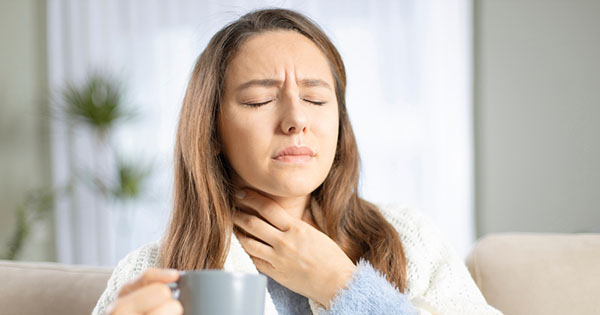What is a Vocal Health First Aider (VHFA), and how can you become one? Alexa Terry, a proud VHFA herself, explains.
Vocal Health Education (VHE) is a not-for-profit organisation on a mission to promote the importance of vocal health and injury prevention within the performing arts industry.
The organisation recently launched the Vocal Health First Aid course to train members of touring companies, performing arts institutes and youth groups to become Vocal Health First Aiders (VHFA).
A VHFA will have:
- An informed understanding of vocal health and the ability to guide a person in maintaining their vocal well-being.
- An understanding of the symptoms of vocal abnormalities.
- Knowledge about when and how to refer a person to a rehabilitation specialist or ENT. The VHFA is not a diagnostic voice, nor is it within their remit to rehabilitate at this level.
Who presents the Vocal Health First Aid course?
Nine specialist presenters share their expertise:
Stephen King – Vocal coach, massage/manual therapist, founder of The Voice Care Centre and co-founder of VHE.
Dr Jenevora Williams – Voice teacher, rehabilitation coach, author of Teaching Singing to Children and Young Adults and co-founder of VHE.
Line Hilton – BAST founder, general nurse, performing arts medicine specialist, vocal coach, mental health first aider and RTT specialist.
Anne-Marie Czakjowski – Singing teacher and mindfulness practitioner.
Chris Johnson – Vocal coach, teacher trainer and co-founder of The Naked Vocalist podcast.
Lydia Hart – Speech and Language Therapist trained in vocal massage, myofascial release and laryngeal manipulation.
Natalie Watson – ENT registrar specialising in voice.
Duncan Rock – Classical singer and nutritionist.
Oren Boder – Singing teacher and founder of the SOVT Singing Straw and OB1 Theatre Company.
Who should do the VHFA course?
Vocal coaches, musical directors, singers, composers, choreographers, choir leaders, performance festival organisers and conservatoire administrative co-ordinators would all be suitable candidates for the course. Anyone involved in the performing arts who would benefit from understanding how to maintain their own vocal health and that of their students or colleagues would find the course useful.
What does the course cover?
The course consists of 34 bitesize webinars on different vocal health subjects. At the end of the course, there is a short quiz. Participants must score at least 65% to proceed to the final stage, which is an interview with a VHE representative.
If the participant passes this assessment, they will receive the VHFA qualification. If the student doesn’t pass, then they can revisit the course content at no extra charge. A resource list is provided (and includes the BAST podcast and blogs!), as well as downloadable material, including presentation slides and a blank presentation document to write notes.
The course content includes discussions on:
• The Performing Arts Medicine Specialist.
• Five body systems and how specific dysfunctions in these areas impact the singer.
• Mindfulness (including two practical exercises).
• The impact of emotions on our body and behaviour.
• Music Performance Anxiety (MPA).
• Vocal anatomy (with a scattering of exercises).
• Understanding tension.
• Ways to assess the singing voice through movement.
• How to assess the speaking voice (with audio examples).
• An insight into laryngology and the voice clinic.
• Vocal pathologies (including symptoms and visual examples of surgical interventions).
• Hydration and acid reflux.
• Straw phonation (with practical exercises).
• General guidance the VHFA can provide.
How long does it take?
Participants have 30 days to complete the course. I finished it in about 14-hours spread across one week, which included note-taking, video rewinds, downloading material and taking the foundation quiz – time very well spent. The informal interview lasts between 15 to 30 minutes, after which, if you pass, a qualification badge is issued.
How much does it cost?
Considering the content and the value the course provides, I assumed it was going to cost hundreds of pounds. However, the price is reflective of the team’s mission to make vocal health education accessible to everyone. The course is £55, with an extra £45 charge for the informal interview, thus altogether costing £100 – an absolute steal!
What happens in the test and interview?
After I hit ‘start’ on the course foundation quiz, I had flashbacks to sitting in an exam hall during my school days and, by all accounts, suffered symptoms similar to those Dr Jenevora Williams describes as “sympathetic responses” to performance anxiety.
However, the test is made up of 14 multiple choice questions and is quite passable. It serves to ensure that participants have spent time digesting the content instead of simply jumping straight to the test for a speedy qualification.
The interview that follows the test is a short discussion with a VHE representative who will ask you about your experience completing the course and how you might integrate this into your current teachings. So, rest assured that you can mop the exam sweat from your brow.
To summarise…
In the music and theatre worlds, there has long been a stigma associated with vocal injury. Here is Broadway performer Caissie Levy explaining her battle with vocal health on The Ensemblist Podcast, Hurt and Healing.
“On some of the theatre sites (which I know better than to read), there were rumours going around that I’d been fired when I played Elphaba in Wicked in Los Angeles back in 2008… I did have a tough time when I was playing Elphaba after doing the understudy track on Broadway for a year… I’d been dealing with a cyst on my vocal cords for a number of years prior to taking that job, and it just became something I couldn’t manage whilst doing that contract. I was incredibly depressed and frightened and scared, and sad.”
Vocal injury shouldn’t be a dirty secret. Sports fans supported Andy Murray when he suffered a hip injury, and we were all encouraged to pray for David Beckham’s broken foot ahead of the 2002 World Cup. Shouldn’t Adele, Caissie Levy or an auditioning Musical Theatre graduate garner the same level of respect and empathy?
The answer is yes, of course, and it is thanks to the likes of VHE that attitudes to vocal injury can and will change. Hopefully, scenarios such as the one Levy experienced will become a thing of the past.
The simple act of having a ‘Vocal Health First Aider’ in a choir, musical school or music department serves to promote awareness of, and respect for, the topic.
I came away from the course feeling refreshed, confident, and that I can contribute much more to the advocacy of vocal health. VHE, please accept my standing ovation.
Count me in! Where can I sign up?
You can sign up at vocalhealth.co.uk. (The course is popular, so there may be a waiting list).
Other VHE courses
In the not too distant future, VHE will also offer training to become a Vocal Rehabilitation Practitioner or a Vocal Rehabilitation Specialist. Information about these two courses is on the VHE website, but enrolment has not yet opened.
LEARN MORE
Listen to the founder of Applause for Thought Raffaella Covino explain her campaign to improve mental health awareness in the industry. Tune into Episode 76 of the Singing Teachers Talk podcast.
Share your views or questions on vocal health at the BAST Trainers Facebook group.




